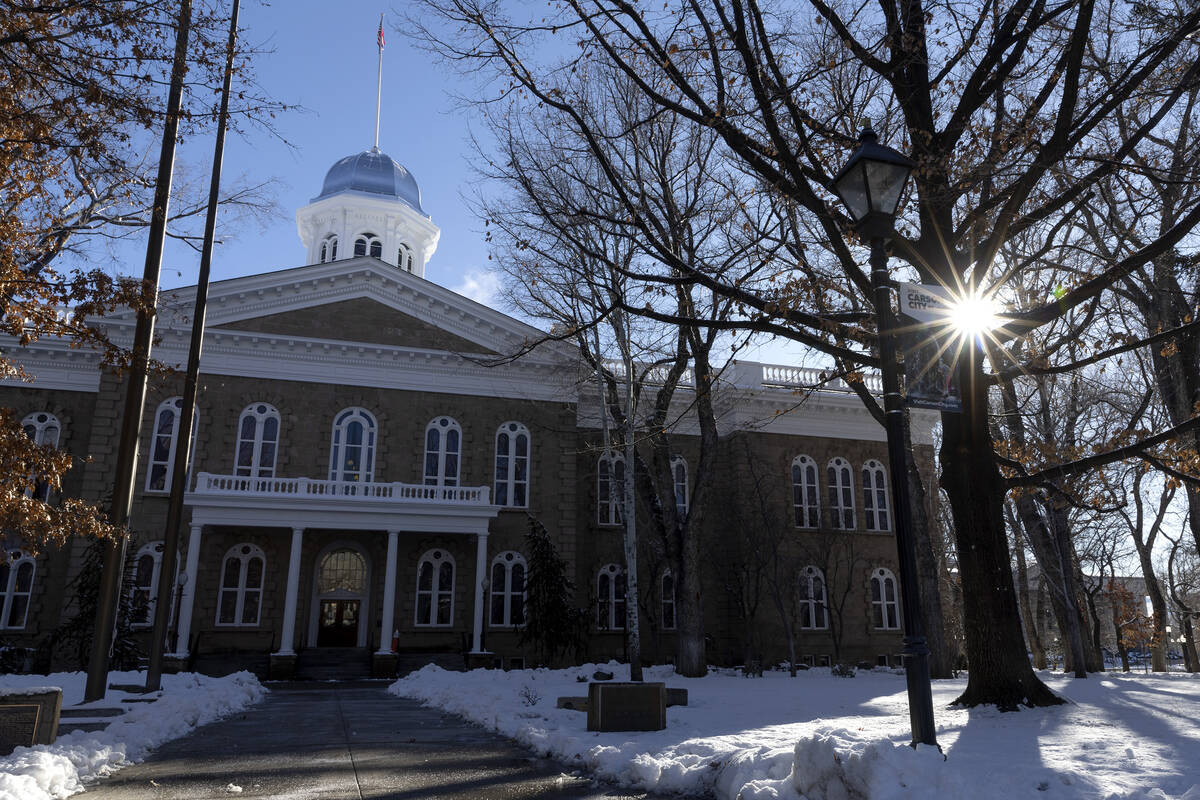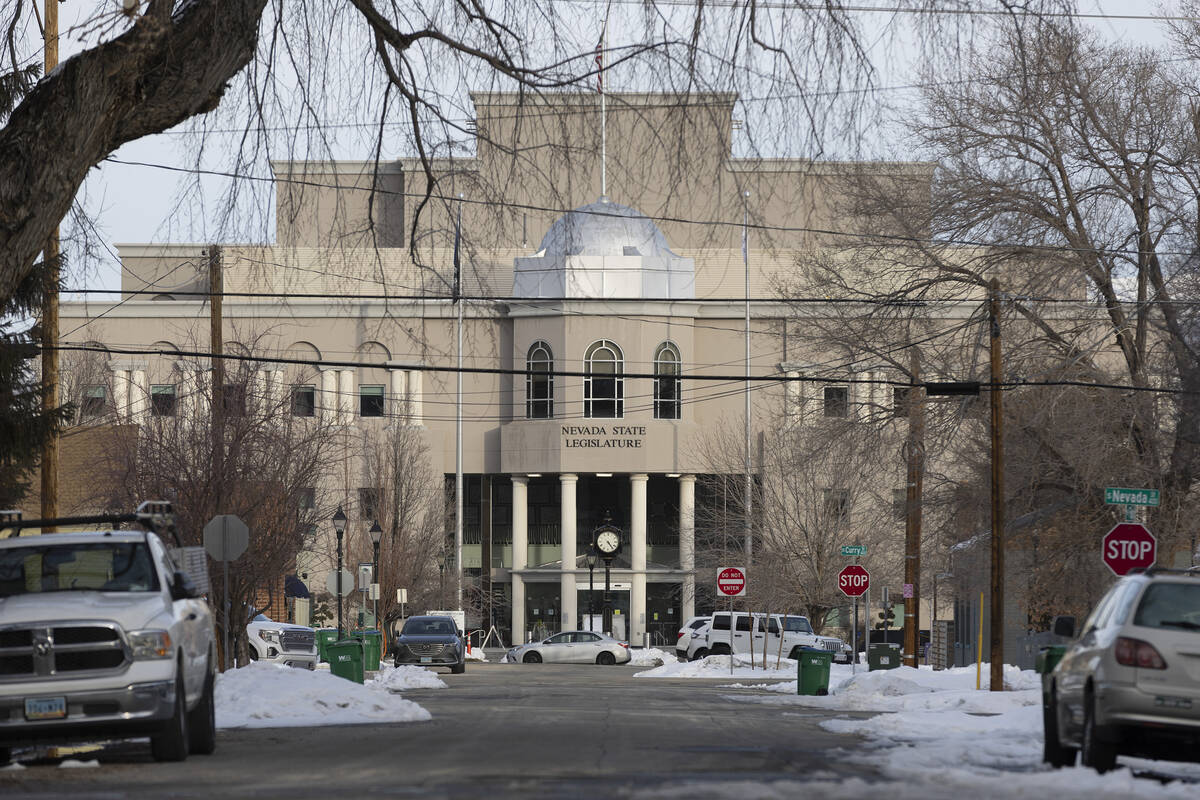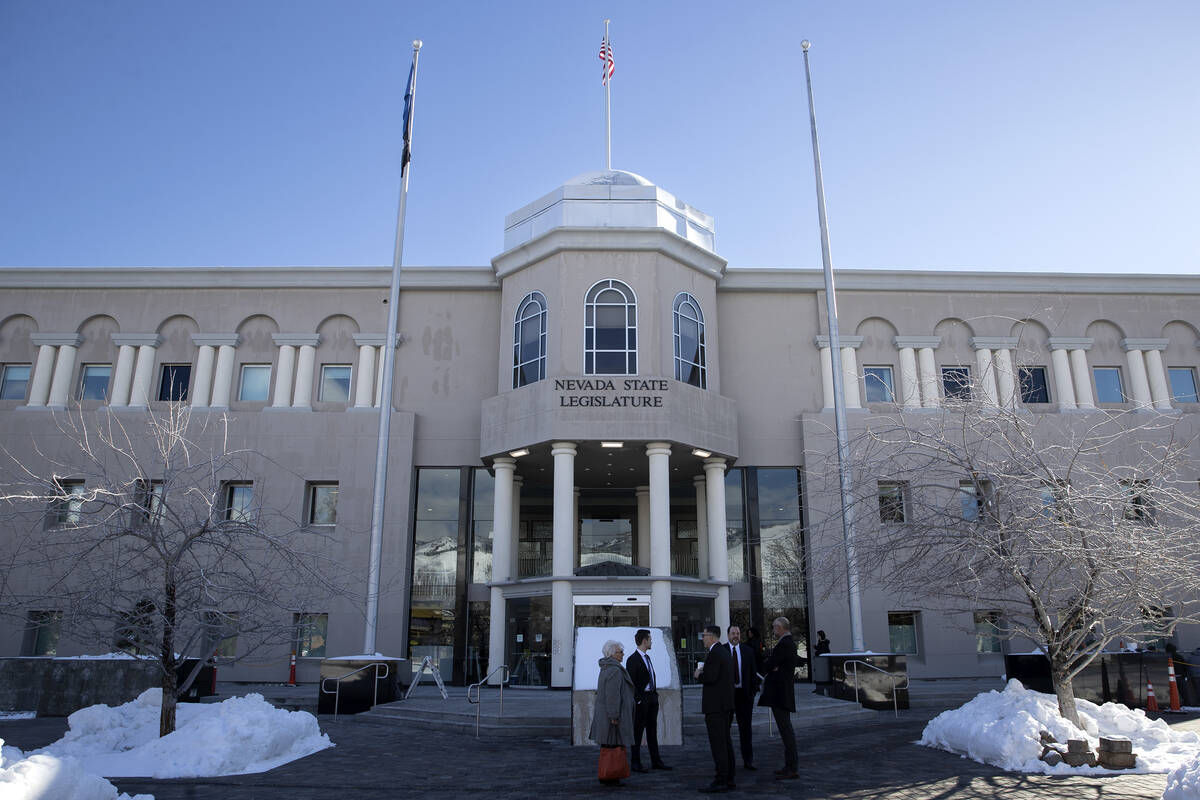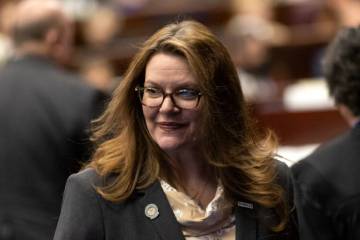Snow days won’t affect Nevada’s legislative calendar, leaders say
CARSON CITY — When lawmakers entered the legislative building on Carson Street in early February, the 120-day clock to finish their work started ticking.
Mother Nature, on the other hand, had other ideas.
The Tahoe-Carson area experienced large amounts of snowfall during the past week, closing the Legislature for three straight work days and dumping between 8 and 12 inches on Carson City over the past three days.
When there are fewer than 100 days left until the end of the legislative session, three days can feel like vital time lost. But if it had to happen, early on in the session is better than later, said Legislative Counsel Bureau Director Brenda Erdoes.
“If there’s a good thing about this, it’s that it happened in the first month of session, not in the middle or late, where you wouldn’t be able to make it up,” Erdoes said.
The Nevada Constitution mandates that the Legislature must start on the first Monday in February and has until midnight Pacific Standard Time on the 120th day to finish its business. There’s no accounting for snow days in the constitution, even if deadlines to introduce bills start falling in March.
But legislative leadership, including Senate Majority Leader Nicole Cannizzaro, D-Las Vegas, didn’t express concern over the missed days.
“The Majority Leader doesn’t anticipate the three snow days will affect the legislative session,” said Mindy Pressman, a spokesperson for the Senate Democratic Caucus, in a statement. “Committees will be able to absorb any impact and have the ability to hold evening and weekend meetings.”
Senate Minority Leader Heidi Seevers Gansert, R-Reno, said she didn’t anticipate any “significant effects” either.
“We still have plenty of time remaining to be able to hear bills and work on the budget,” Seevers Gansert said. “If this would have happened in May, it could be catastrophic, but we’re still early in the session.”
Assembly Minority Leader P.K. O’Neill, R-Carson City, echoed his colleagues in a statement.
“During this inclement weather, the Speaker has done an excellent job of facilitating efficient use of our limited time while ensuring the safety of our members and staff. I don’t feel this will affect our ability to get everything done on time,” O’Neill said.
Matthew Blakely, a spokesperson with the Assembly Democratic Caucus, said members of the caucus are “working overtime” to make sure they don’t fall behind.
And working longer days and into the weekends may come earlier than expected because of the unexpected snow days, said Erdoes.
“Sort of like, in a business where you’re trying to manufacture something. If there’s a problem in the beginning you can sort of make it out but it does sort of jam up the rest of it. Make it a lot more important that everything be done efficiently and by the deadlines,” she said.
Time becomes a precious commodity late in the session. A 2001 state Supreme Court case held that, because daylight saving time takes effect during the biennial sessions and the state loses an hour, the Legislature could go until 1 a.m. on the final day of the session. But the Legislature, starting in 2009, amended the constitution to end the use of the extra hour, and voters approved that change in 2012.
But if things are so desperate that an extra hour would make a difference, how much more would lawmakers appreciate getting those three missing snow days back come June?
Contact Taylor R. Avery at TAvery@reviewjournal.com. Follow @travery98 on Twitter.










